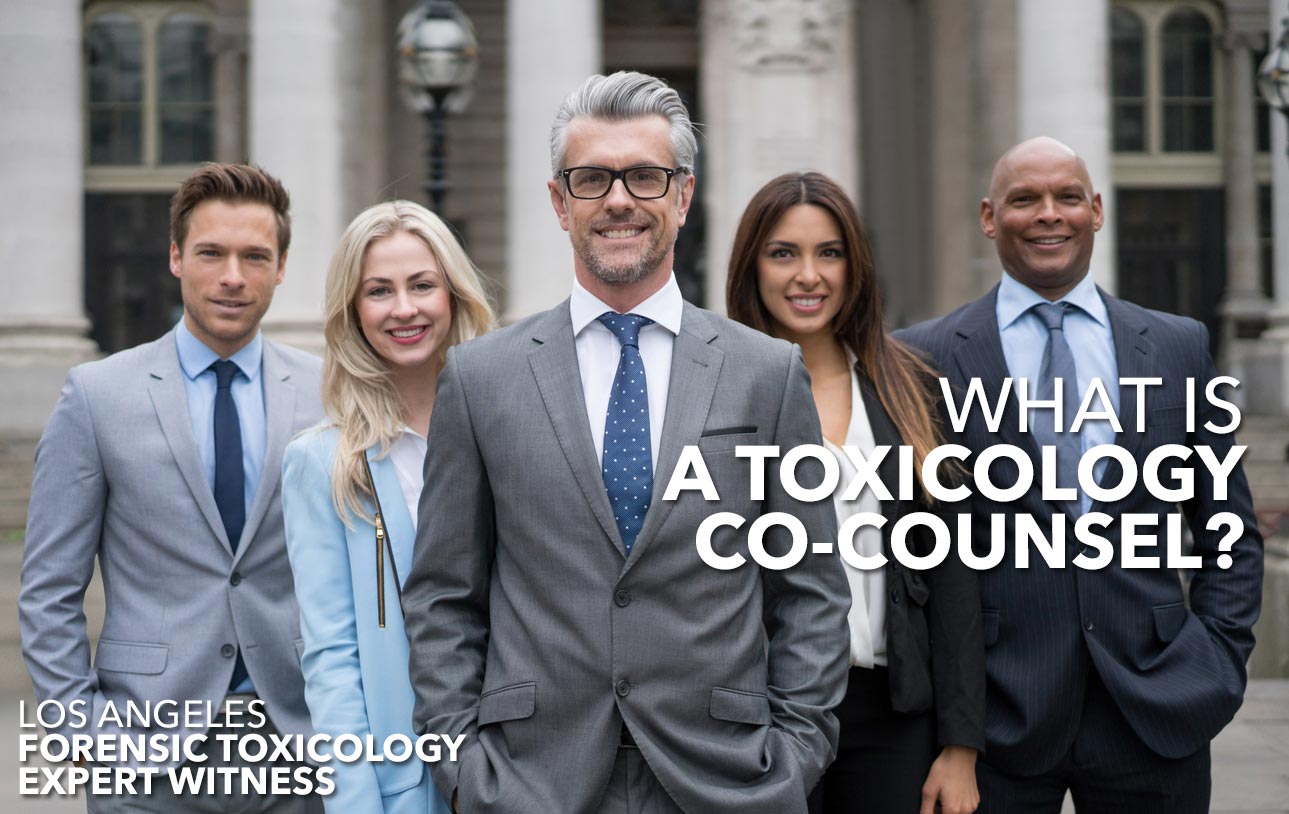What Is A Toxicology Co-Counsel?

California courts are faced with an overwhelming number of cases each year. Ensuring thorough preparation of a legal case is important to ensure your case has a stronger argument when it’s heard in court. This sometimes requires enlisting the help of an expert witness or co-counsel. Forensics and toxicology are often involved in legal cases, especially where drugs and alcohol are involved, and require an experienced toxicology co-counsel to assist in demystifying the science and interpretation of toxicology results.
What Is Toxicology?
Toxicology involves the study of chemical effects on living organisms (the human body). This also covers diagnosing the effects of toxins and poisons, more commonly drugs and alcohol, the scientific analysis and interpretation of these effects. Forensic toxicology expands on this to include an understanding of crime scenes and pathology.
Reasons Why You Should Use a Toxicology Co-Counsel
With cases involving drug or alcohol tests, having an expert can add a competitive edge to your case. Listed below are two common cases in which an experienced toxicology lawyer, such as Okorie Okorocha, can be extremely helpful:
- DUI (Driving under the Influence) Cases: The measurement for determining a DUI is based on testing the blood alcohol concentrate level, referred to as BAC. Once the BAC reaches higher than 0.08%, it is considered illegal to be driving a vehicle in the United States. There are three main types of alcohol testing used: blood, breath and urine test. Understanding the process of the testing methods and the interpretation of the results might fall short of the expertise of a regular trial lawyer. The accuracy of the alcohol tests as well as the process in arriving at the result will need to be reviewed and analyzed by an expert in the field.
- Drug Tests: At some point, a mandatory drug test may be required to be administered as part of a condition of employment or as a result of being a professional athlete/sports person. The most common practice of drug screening is testing urine (referred to as the immunoassay test). The alternative, more expensive method is the gas chromatography-mass spectrometry (GC/MS) test. A quick urine test is known to have a higher false-positive rate than the GC/MS test. There are factors which could result in false-positives and understanding the pros and cons to both of these methods. An experienced toxicologist would be able to investigate the effect of any consumed substances and the manner in which it was metabolized in the body in order to verify the drug test results.
What To Look For When Appointing a Toxicology Co-Counsel
Toxicology covers a range of fields from pharmacology and forensics to biochemistry. Appointing the right co-counsel might be the difference in winning or losing a case. While there are many expertise or requirements that can be useful, here is a list of the most important things to consider when looking for a toxicology expert to be part of the legal team:
- Education: A degree in toxicology or a related field such as chemistry, pharmacology or biology coupled with a law degree.
- Experience: Your future co-counsel would ideally have vast experience in trial cases and understand the process of processing and analyzing legal evidence.
- Knowledge: Extensive knowledge of toxicology and the understanding of the effects of chemical substances are crucial. This is fundamentally the purpose of the co-counsel to ensure that examination of the evidence has been done correctly and the results of any tests conducted are accurate and authentic.
Understanding the science of pathology, toxicology and the effects of chemical substances on the human body requires a skilled expert. Strengthen your case by adding an experienced co-counsel to your legal team to cover the toxicology related part of your case.




